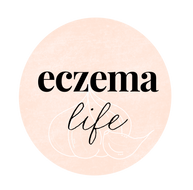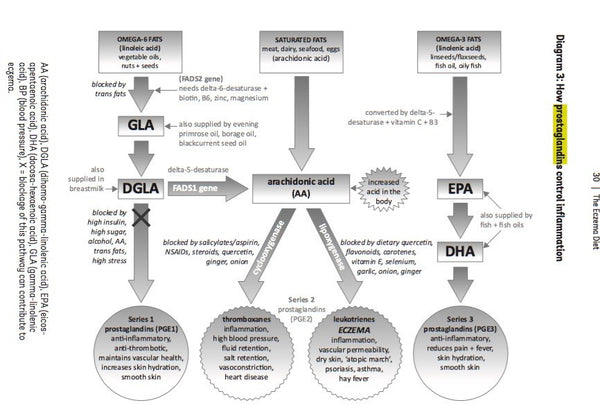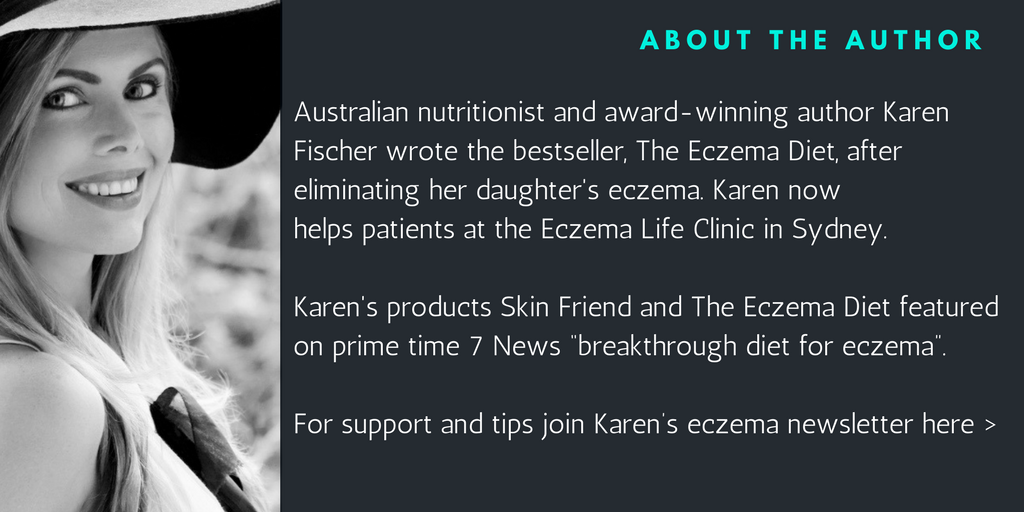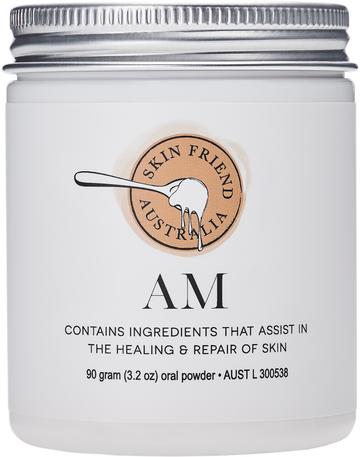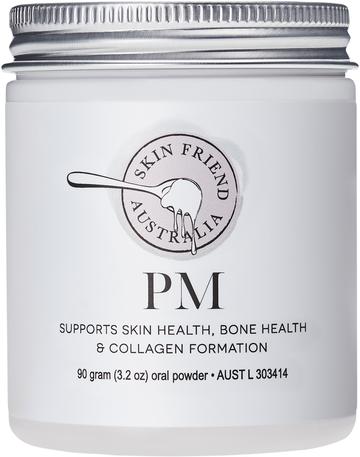The top 5 eczema mistakes – from John Stone in "The Night Of"
Have you seen the new(ish) TV series about the guy with eczema?
It’s fascinating.
The HBO TV show is called “The Night of” and one of the main characters, criminal Lawyer John Stone, played by John Turturro, suffers from debilitating eczema.
It’s not all about his eczema journey, it is a crime series written by the great New York crime author Richard Price.

The subplot is a saga of John going from doctors to dermatologists and alternative therapists in the bid to be free of his embarrassing skin problem.
It’s an interesting story which I’m sure many people eczema could relate to! The treatment regimes are so spot on I wonder if the writer secretly had eczema.
Here are 5 eczema treatment John road tests on the show and what you can learn from them:

1. Oil and cling wrap therapy
In an episode, John pours Crisco Oil onto his eczema-riddled feet and wraps them in cling wrap (plastic wrap) while a woman looks on. John is seen walking around in his sandals with the plastic wrap showing. This is one of the many socially awkward moments he faces with eczema.
 The verdict:
The verdict:
John finds the “oil wrap” does nothing to help rid his eczema. While oils and wrap helps to lock in moisture and give temporary relief from dry skin, it’s a treatment that usually fails as it does not address the cause/s of eczema.
Remember eczema is usually an internal condition (unless it’s contact dermatitis) so most external treatments are only band-aid solutions at best. Nothing wrong with bandaids but you can do better John.

2. The chopstick method
This is a joy to watch… if you don’t have eczema.
Imagine a high powered lawyer in court pulling a chopstick out of his pocket then using it to scratch his itchy, peeling feet.
The verdict: you know this annoying advice already (all the useless eczema books tell you this)... don’t scratch your eczema. This is hard to do, I know!
Scratching can fire off histamines within your skin and cause more irritation. But I’m with the doctor on the TV show when he said, “unless you want an alternative, you can continue to hack your leg off with the chopstick”.
Just remember when scratching, be very gentle. As an alternative I recommend a little known itch remedy… alkalising calcium powder to temporarily reduce the itch – it works wonders! An ice pack helps too.
3. The big guns
John visits his doctor and this is what happens: the doctor throws all of John’s current remedies (skin creams etc.) into the bin. Then he prescribes a crazy high dose of topical steroids (20mg), plus tells him to buy a UV lamp, UV glasses to protect his eyes from the lamp, and Clorox to make a bleach bath.
John then takes his prescriptions to the drug store (pharmacy), which he is constantly in and out of. The pharmacist isn’t comfortable with John taking such a high dose of steroids. So the pharmacist lists all the potential side-effects of taking the topical steroids. John still fills his prescription.

The verdict: the big guns (steroids, UV and bleach) have one main flaw in common: they are all external solutions that weaken the skin, not strengthen it.
Bleach baths are used to bring skin infections under control but they also dry out the skin which can make it more painful and itchy, so bleach with caution and only if prescribed.
Research shows that topical steroids and UV therapy can increase the risk of skin cancer. Now that’s more dangerous than eczema – so why risk it?
Topical steroid withdrawal can also lead to elephant-like folds in the skin, increased itch and painful red skin. And 6-18 months of TSW hell if you are unlucky.
Topical steroids cause calcium deficiency (now this is new!)
Research shows topical steroids can cause hypocalcemia, which is calcium deficiency (ref). And this is bad news for people with eczema as calcium deficiency can lead to insomnia, anxiety, cravings for sugar and eczema (ironically). This is another reason why eczema can worsen after topical steroid abuse.
Topical steroid also cause fatty liver, which leads to food and chemical sensitivities and eczema. So topical steroids can end up worsening the problem.
The solution? Start looking after your body by eating better and relaxing more. Favour eczema-friendly foods and supplements that work to reverse the liver damage that drug treatments can cause. Back to the TV show…

4. John sees a Chinese Medicine man
The medicine guy seems to know what he is doing and John begins taking this unknown substance – a fine brown powder – and initially John sees results.
He can put real shoes on again! It’s a miracle. He gloats and shares his new remedy with his eczema support group. But the gloating is short lived.

John’s eczema returns when he has an affectionate moment with the cat he has been looking after. His rash returns. The Chinese doctor blames Jon’s cat for the medicine’s failure to work.
The verdict: herbal medicines can be highly anti-inflammatory and this works to temporarily block the lipoxygenase pathway that leads to leukotrienes formation and eczema, much like a medical drug would. Blocking this pathway is a band-aid solution that often stops working after a while. Refer to this diagram from The Eczema Diet book.
Why can herbal medicines fail? If you are still eating the foods, chemicals and fats which can trigger leukotriene formation, then any anti-inflammatory/flavonoid remedy will eventually stop working.
It’s much better to temporarily change your diet so you are not eating the inflammation-building materials in the first place. Treat the cause and not try to block anything.
Herbs are also rich in a natural pesticide call salicylates which can trigger eczema in more than 52% of people with eczema according to researchers from the RPA Hospital in Australia (ref below). So if you are sensitive to salicylates, your eczema could worsen when taking herbs. Salicylate sensitivity and the scientific research showing its link with eczema are covered in detail in 'The Eczema Diet' and 'The Eczema Detox'.

5. Jon tries every remedy at once
When John starts reacting badly to the herbs and work stress he panics. So he takes EVERY medication, cream, and product he’s ever been prescribed.
John ends up in emergency. His doctor gasps when he checks out the Chinese medicine and suggests that he should be using it to tar his driveway.
The verdict: never mix remedies and treatments. Firstly, you can overload your liver or damage your kidneys when using medical drugs and too many unknown herbs (and you can actually end up in emergency). The result is an unhealthy liver which is one of the causes of eczema, so take it easy.

And another reason you don’t mix remedies is you will never know what treatment IS working for you, especially if you are using a product that is worsening your eczema.
At the Eczema Life Clinic we see this often. People follow The Eczema Detox programs (a very specific and gentle low chemical diet) but they still take their herbal medicines and other remedies which are rich in chemicals and salicylates. So they annihilate the low chemical diet with their high chemical products and still feel itchy.
As soon as they follow the diet 100% they can see how the diet works for them. No 80/20 rule – that does not work with severe eczema. I also modify the diet for people who have different allergies and sensitivities as it’s important to keep avoiding the foods you react to, even if they are on the shopping list or recommended to you.

The finale
By the end of the TV series, John is back to being a full-blown eczema sufferer wearing the white cotton gloves to his court hearings.
But nothing has changed with how he lives. His diet is the same, he manages stress in the same way. He kept the cat (but that was not proven to be a problem).
Learning from John’s experience is a positive one and a story many eczema sufferers know well.
What to do next?
The foods and drinks you consume each day directly affect your gene function and specific nutrients are literally used to make your skin. So begin with changing your diet first, not last.
What do I recommend for eczema?
Being a book author and a nutritionist at the Eczema Life Clinic, I receive thousands of emails asking what I recommend for eczema. I apologise that I can no longer reply to each email personally and my staff are often busy. So please read on if you would like this information for free.
Disclosure: I will be mentioning my product Skin Friend, which took ten years to develop and test but there is absolutely no pressure to buy. I also mention specific vitamins and minerals. It will definitely be useful so I hope you read on.
Why calcium is good for eczema
As mentioned earlier, highly alkaline forms of calcium can temporarily reduce the itch for several reasons: they alkalise the blood which causes the body to dump out chemicals call salicylates via the urine. Acid-alkaline balance plus reduced salicylates in the blood = relief.
Research: When the urine pH exceeds an alkaline reading of 7.5, more salicylates are eliminated than reabsorbed, and three times the amount of salicylates are excreted via the urine.
Calcium deficiency, which can be caused by topical steroid overuse and poor diet, can lead to eczema, anxiety, depression and insomnia which are common in people with eczema.
So take calcium but don’t take calcium citrate (the one health practitioners love) as citrate is citric acid (an acid) and so the alkalising benefits of the calcium are lost. I tested calcium citrate on eczema patients and it did not help them. Plus some eczema sufferers are unknowingly allergic to citric acid so avoid this ingredient.
I gave up using calcium for a while (disheartened by the poor results from adding calcium citrate to my formula) until I found a type of calcium that relieved the itch. People still say “calcium citrate is the best as it’s better absorbed” but they miss the point … it’s not alkaline enough and it’s not an eczema remedy.
Magnesium, zinc and more
When it comes to eczema you need more than just calcium. Magnesium, zinc, B vitamins, vitamin C, vitamin B6, and molybdenum, to name a few, are essential. These ingredients are included in Skin Friend and I have covered their significance in other posts. But here is a tip:
If buying vitamins, avoid supplements containing vitamin A (retinol forms), or high doses of vitamin B3 and vitamin B5 as they dry out the skin and worsen eczema. The last time I took a vitamin A supplement my face peeled for a week! And 50mg of vitamin B5 did the same.
Is too much zinc bad for you?
Another tip no one tells you is don’t take too much zinc. Less is more.
All you need is 8-12mg if you are an adult, and about 4mg for children under age five.
Why not take mega-dose your zinc?
Zinc is stored in the liver and you want to improve your liver, not burden it. Remember nutrition is an everyday thing so balance is best. Don’t overdose your liver with megadoses of zinc or iron, as a healthy liver means clear skin.
I know many health practitioners prescribe mega-doses of zinc (above 18 mg for adults) and they love zinc picolinate. Zinc picolinate is banned in Australia due to adverse effects on the liver. And once your liver stores too much it can cause vomiting and copper deficiency which messes up your collagen production.
I confess I used to prescribe Zinc picolinate too but it caused vomiting in three of my patients (as the picolinate form is TOO well absorbed). This was embarrassing! So I urge practitioners to stop prescribing high dose zinc and use a safe form of zinc such as zinc gluconate as it’s great for eczema and acne.
What can you do next for your eczema?
Do what is best for your long-term health. Don’t mix lots of remedies together in a desperate attempt to annihilate your eczema. Don’t abuse yourself as you will get more stressed and confused.
Simply eat healthy balanced meals (check out The Eczema Detox if you haven’t already) and stop listening to everyone.
When I first became a nutritionist I had to stop following the norm (ie herbs, super high dose zinc and crazy high dose of acidic vitamin C, and probiotics), because when I asked for feedback my patients told me these supplements didn’t work. When one of my patients, after eight months of using other practitioner supplements said “Make me the supplement you used to get rid of your daughter’s eczema” I was hesitant at first. But I did and her eczema cleared up within a couple of weeks. After 50 years of having eczema, it completely cleared up. Everyone is different and I urge you to do your own research. I hope you are eczema-free soon!
Feel free to wander around my product website or check out the links below.
Much love,
Karen Fischer and Deb from the Eczema Life Clinic (Sydney)
Products
At Eczema Life, we recommend nutritionist Karen Fischer's low food chemical program (The Eczema Detox) along with additive-free supplements for skin health and wellbeing. Click on the images to view more details:
References
Loblay, R.H. and Swain, A.R., 2006, ‘Food Intolerance’, Recent Advances in Clinical Nutrition, retrieved 1 April 2011: www.nsw.gov.au.
